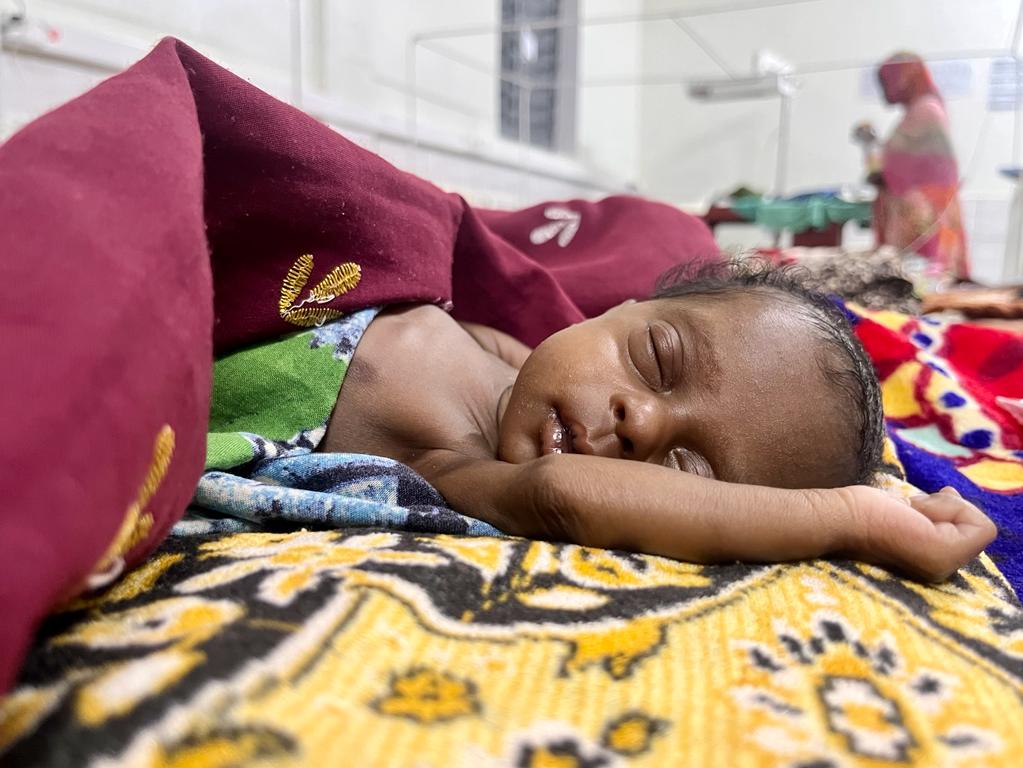Chad: A little spark of hope
A little spark of hope. Specifically, 800 grams of hope. At the end of September, a mother with a premature baby girl arrived in a Médecins Sans Frontières / Doctors Without Borders (MSF) neonatal care unit in Adré, eastern Chad... arguably one of the worst places on earth to start life right now.
Born into a crisis
Eastern Chad is currently hosting an estimated 450,000 refugees from the war in neighbouring Sudan. Since April this year, many people have fled a brutal conflict in which attacks on civilians and healthcare have become the norm.
However, Chad itself is ranked near the bottom of the Human Development Index – a scale that measures statistics such as life expectancy, education, and income. The result is one vulnerable community hosting another vulnerable community.
This is where a little girl was born, in a makeshift shelter, before being brought to an MSF-supported hospital.
“If there is one story that demonstrates the incredible effort and success of the medical team here, it is this little girl”
The World Health Organization defines any number under 2,500 grams as a ‘low birthweight’. Eight hundred grams, the weight of this baby, is so low that even in a high-resource hospital in a high-income country with specialist equipment and training, helping this child to survive would be a significant challenge.
“If there is one story that demonstrates the incredible effort and success of the medical team here, it is this little girl,” explains Michael Malley, MSF paediatrician.
“Keeping an 800 gram baby alive means extremely careful attention to detail over a long period of time. Many of the team here are not neonatal specialists, so their dedication and motivation makes this achievement even more remarkable.”
The team had to check the baby’s vital signs and blood sugar levels every two to three hours, adjusting what they could to keep her stable.
They gave countless doses of antibiotics and constantly checked that the feeding tube was safely in place.
And, on top of their care for the baby, the team also worked to support her mother who had not only escaped a war and gone into labour prematurely but was now witnessing her newborn girl struggle for life.
As of 1 November, the little girl weighs 1,320 grams. Still low, but she is finally fit enough to leave the hospital – a big day for everyone in the team.
Michael’s assignment in Chad is now about to end. But before leaving he paid one last visit to the neonatal unit to make sure that the baby is still doing well, and to say goodbye. Unknown to him, a few days before the mother had decided to name the baby after Michael, grateful for what the team did for her daughter.
And so it's Mikaela he is looking at, wrapped in a colourful blanket, surrounded by other mothers with their newborn children in the always busy neonatal unit of Adré hospital.
The spark
Since the beginning of the current crisis, MSF has assisted over a thousand women in the region to deliver their babies.
While most of these births followed a less dramatic path than Mikaela’s, none of these children have been born into an easy life. Essentials like safe drinking water, sufficient food, and malaria nets are scarce.
Every day, dozens of children are treated at the malnutrition ward in the MSF paediatric hospital in Adré. Every week, our teams distribute therapeutic food for hundreds more so that they can be treated in the community.
But this is not enough and there are still more people with more health needs than can be met by one organisation.
However... Little Mikaela is a spark of hope for everyone. For the MSF teams working across eastern Chad. For the refugees who know that their children can receive free, high-quality medical care when needed.
As little as 800 grams can make a big impact. A spark that can light up the dark.
MSF in Chad
Since 2015, thousands of people in the Lake Chad region have been forced to flee their homes as a result of violent clashes between armed groups and Chadian military forces. MSF teams are currently responding to the crisis in the east and south of the country.
Since the outbreak of the conflict in neighbouring Sudan in April 2023, hundreds of thousands of Sudanese refugees have also sought safety in Chad. We have been running medical services in the east of the country to meet the needs of both the refugees and vulnerable Chadians.
